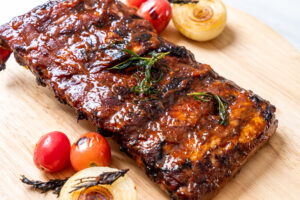
Order your next bottle of Scout & Cellar wine TODAY!
If you’re a wine connoisseur, you might want to raise a glass to our forefathers. Winemaking dates back to the late stone age. However, if you’re a wine connoisseur trying to stay vegan, hold off on putting that glass to your lips just yet. Before you drink, you’ll need to know more than simply ancient history.
Over the last nine thousand years, the winemaking process has been greatly perfected. This resulted in an adult beverage that is far more pleasurable than a cup of fermented grape juice.
However, these advancements are due in part to the fact that fruit from the vine is no longer the only ingredient in modern winemaking. Is wine vegan, then? We’ll have to take a closer look at how wine is manufactured to find an answer to that question.
WHAT EXACTLY IS A VEGAN DIET?
Veganism is a philosophy and way of life. Aiming to eliminate all forms of animal exploitation and cruelty for food, clothing, or any other reason.
For the benefit of animals, humans, and the environment, it supports the development and adoption of animal-free alternatives. In dietary terms, it refers to the practice of avoiding all animal-derived goods entirely or partially.
IS WINE A VEGAN PRODUCT?
We don’t want to keep our vegan friends waiting. Let’s get right to the point. The vast majority of wines are not vegan-friendly. Many wines aren’t even vegetarian-friendly. Vegan friendly wines, on the other hand, do exist and are becoming increasingly popular among both vegan and non-vegan drinkers.
To put it another way, you can live a totally vegan diet while enjoying a glass of fine Pinot Noir. The only problem is that, while vegan wine isn’t difficult to come by, it might be difficult for the ordinary customer to recognize. So, what makes you think wine isn’t vegan?
IN WINEMAKING, WHAT NON-VEGAN INGREDIENTS ARE USED?
You’ve already been informed of a startling reality. Animal products can and often are used in the winemaking process, but why?
Non-vegan components are introduced to wine during the fining process. This is a stage during the wine making process that removes excess tannin and improves the wine’s balance by making it softer and less bitter. Fining also clarifies the wine, giving it a lighter tint that allows light to pass through.
The most common fining agents are casein, a milk protein, albumin, an egg white protein, isinglass, or fish bladder, and gelatin. Because they are all animal-derived, none of them are vegan-friendly. Because their aim is to bind to and separate unstable proteins from the liquid that ends up in your glass, these fining agents don’t stay in the wine you drink.
Many vegans, however, would object not just to the eating of animal products, but also to their usage in the manufacturing process at any point. However, there is some good news. There are vegan fining agents available.
Bentonite, a natural clay, is a large one; it operates in the same way as the protein-based compounds listed above, and winemakers use it frequently.
WHERE CAN I BUY VEGAN FRIENDLY WINES?
Here’s how it works. There are various vegan wines available, some of which have been fined with bentonite and others which have not been fined at all, but you’d never know it when browsing the selection at your local wine shop.
The finer points of the fining procedure are so sophisticated that the flowery description on the back of the bottle contains no useful information. However, as the demand for vegan wine has grown, and as a result of a rising number of manufacturers catching on, you can now purchase wines that are explicitly labeled as vegan right on the label.
However, if you can’t find a bottle with the vegan seal of approval, don’t give up. You’ll never know whether a fined wine was prepared with bentonite or non-vegan fining agents, but vegans can drink any unfined wine.
Unfined wines are becoming increasingly popular, in part because many winemakers believe fining might degrade the wine’s flavor and texture. Purists who produce unfined wines are frequently small-production winemakers with a cult following, but the label won’t tell you that.
What’s the takeaway? Ask for anything unfined in a store with knowledgeable employees. Pro tip: Bring home a case of the good stuff if you have to travel to find a retailer with a nice range of vegan wines. Just make sure you keep your wine correctly.
Is Wine Vegan?
If you’re a wine connoisseur, you might want to raise a glass to our forefathers, as winemaking dates back to the late stone age. However, if you’re a vegan wine connoisseur, hold off on putting that glass to your lips just yet. Before you imbibe, you’ll need to know more than simply ancient history.
Over the last nine thousand years, the winemaking process has been greatly perfected, resulting in an adult beverage that is far more pleasurable than a cup of spoiled grape juice.
However, these advancements are due in part to the fact that fruit from the vine is no longer the only ingredient in modern winemaking.





